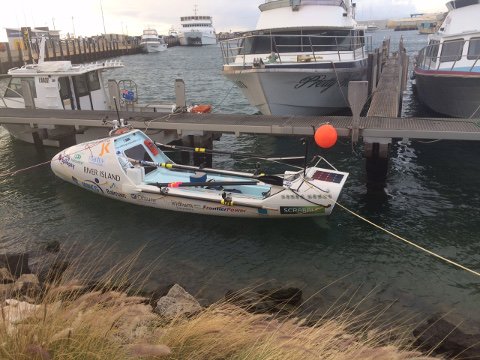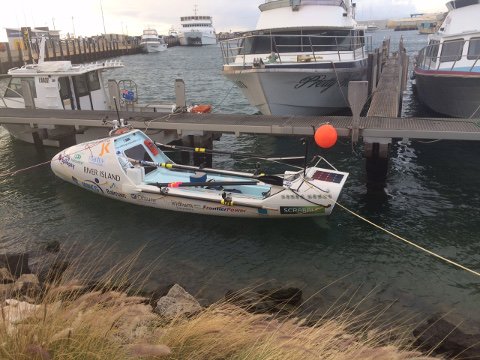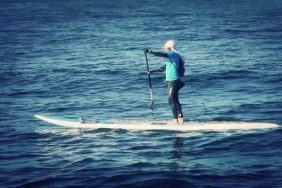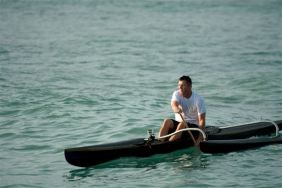
The third try will likely not be the charm for a pair of British rowers who failed their second attempt recently to cross the Indian Ocean.
Ashley Wilson and James Ketchell were trying to make the 3,600-mile journey from Geraldtown, Australia to the Maritius Island in Africa in less than 85 days. But just five days into the trip, facing gale force winds and 20-foot waves on one of the world’s most violent oceans, the pair had to be rescued by a passing tanker.
In a statement posted to their web site the winds were forcing them backwards and Wilson suffered multiple concussions when the boat rolled on several occasions.
Signaling with their emergency devices, the pair caught the attention of a passing tanker ship, which plucked them out of the water to safety. They were later transferred to an Australia coastguard vessel. After being treated at a hospital in Australia, the pair have been released.
The incident follows an earlier aborted attempt about two months earlier when their navigation equipment failed just a day into their crossing. According to British news reports, the pair will likely not be making another attempt. Part of the motivation for the feet was to raise awareness of epilepsy, which Wilson suffers from.
The history of ocean rowing is a long and proud one. The earliest ocean passages by native islanders were all made by rowing. By the 1890s, a few intrepid adventurers made ocean rowing a thing of sport and the first to conquer them a challenge. The first purposeful crossing of the Atlantic Ocean by rowboat occurred in 1896. Since then, it’s been about beating the records. By 1997, the first paired rowing race across the Atlantic took place.
Today’s long distance row boats are much more advanced than your ordinary lake boat. Fully equipped with solar panels, electronic equipment and a sleek design, the boats have a small interior space for storage and shade. But conquering the elements is still largely up to Mother Nature.
Photo credit: Nothings-Impossible.co.uk








